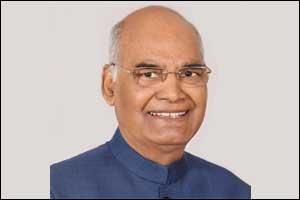- Home
- Medical news & Guidelines
- Anesthesiology
- Cardiology and CTVS
- Critical Care
- Dentistry
- Dermatology
- Diabetes and Endocrinology
- ENT
- Gastroenterology
- Medicine
- Nephrology
- Neurology
- Obstretics-Gynaecology
- Oncology
- Ophthalmology
- Orthopaedics
- Pediatrics-Neonatology
- Psychiatry
- Pulmonology
- Radiology
- Surgery
- Urology
- Laboratory Medicine
- Diet
- Nursing
- Paramedical
- Physiotherapy
- Health news
- Fact Check
- Bone Health Fact Check
- Brain Health Fact Check
- Cancer Related Fact Check
- Child Care Fact Check
- Dental and oral health fact check
- Diabetes and metabolic health fact check
- Diet and Nutrition Fact Check
- Eye and ENT Care Fact Check
- Fitness fact check
- Gut health fact check
- Heart health fact check
- Kidney health fact check
- Medical education fact check
- Men's health fact check
- Respiratory fact check
- Skin and hair care fact check
- Vaccine and Immunization fact check
- Women's health fact check
- AYUSH
- State News
- Andaman and Nicobar Islands
- Andhra Pradesh
- Arunachal Pradesh
- Assam
- Bihar
- Chandigarh
- Chattisgarh
- Dadra and Nagar Haveli
- Daman and Diu
- Delhi
- Goa
- Gujarat
- Haryana
- Himachal Pradesh
- Jammu & Kashmir
- Jharkhand
- Karnataka
- Kerala
- Ladakh
- Lakshadweep
- Madhya Pradesh
- Maharashtra
- Manipur
- Meghalaya
- Mizoram
- Nagaland
- Odisha
- Puducherry
- Punjab
- Rajasthan
- Sikkim
- Tamil Nadu
- Telangana
- Tripura
- Uttar Pradesh
- Uttrakhand
- West Bengal
- Medical Education
- Industry
Adverse male to female sex ratio major cause for concern: President

New Delhi: The adverse male to female sex ratio is a major cause for concern, President Ram Nath Kovind said, and sought support from medical officers to the governments Beti Bachao, Beti Padhao initiative.
He also asked the medical officers to remain sensitive to the poor and the needy.
"Our country is making rapid economic progress. Health and socio-economic indicators must gallop along with it," Kovind said.
He said the disease burden in the country is undergoing change.
"We have to tackle communicable diseases such as TB, malaria and dengue, and at the same time deal with the rising incidence of non-communicable diseases," the president said, addressing General Duty Medical Officers (GDMOS) of the second foundation course conducted by the National Institute of Health and Family Welfare.
These GDMOS called on Kovind at the Rashtrapati Bhavan here.
Kovind said that to address these shifting health priorities, the government has after more than a decade come up with a revised national health policy.
"The adverse male to female sex ratio is a major cause for concern. Undernutrition and malnutrition remains an area where we have a lot more to do," he said.
Kovind said while health may be a core concern, they have an equally important role to play in the socio-economic progress of the country.
"Several key government initiatives such as Beti Bachao, Beti Padhao and Swachh Bharat need your support and service," he said.
The president suggested the medical officers to take a preventive approach to health rather than solely a curative one.
"In this context, integrating our traditional systems of medicine -- AYUSH -- into our healthcare system must be a priority," he said.
Kovind said digital technology combined with Aadhar and mobile telephony can work wonders for health care.
"Our e-aushadhi programme is on course. Tele-medicine is another effective technology intervention which we must put to greater use," he said.
Kovind said the society places high faith in doctors and their noble profession.
"I am sure you will reciprocate their faith with committed service, always being compassionate and sensitive to the poor and the needy," the president said.
He said the country's disease burden remains high.
"Coupled with it we have issues of delivery, access to services and affordability. But with dedication, drive and determination, we can achieve our goals," Kovind said.
The president said that the goal of universal health coverage is a priority for the government.
"The implementation of the national health mission critically depends on your commitment. This needs effective governance at the community, village and district levels," he said, addressing the medical officers.


